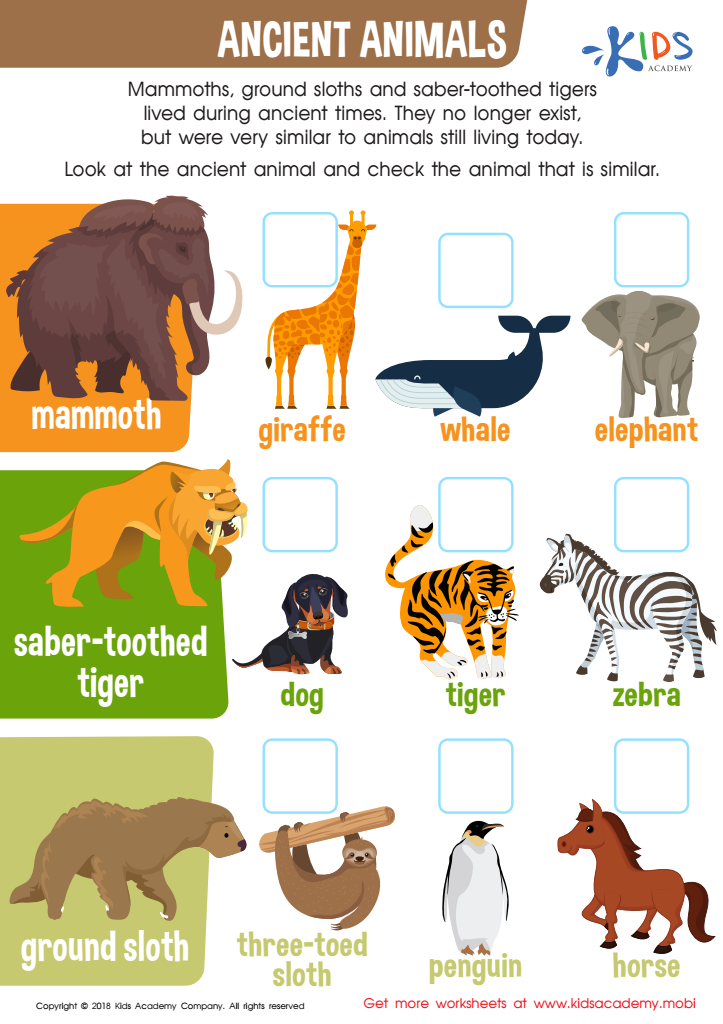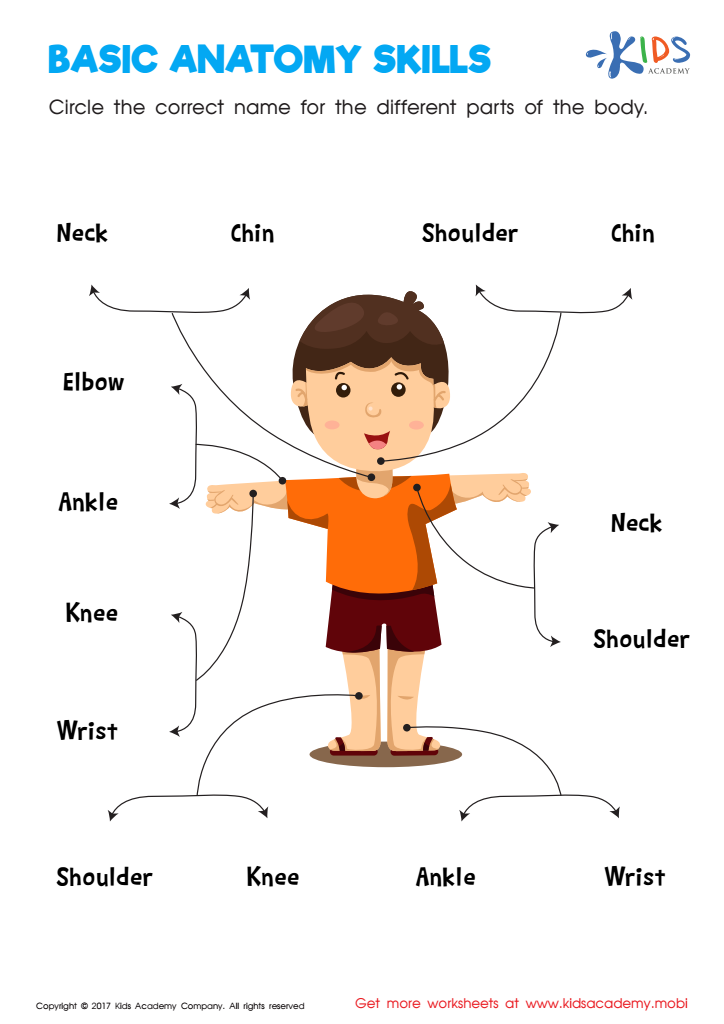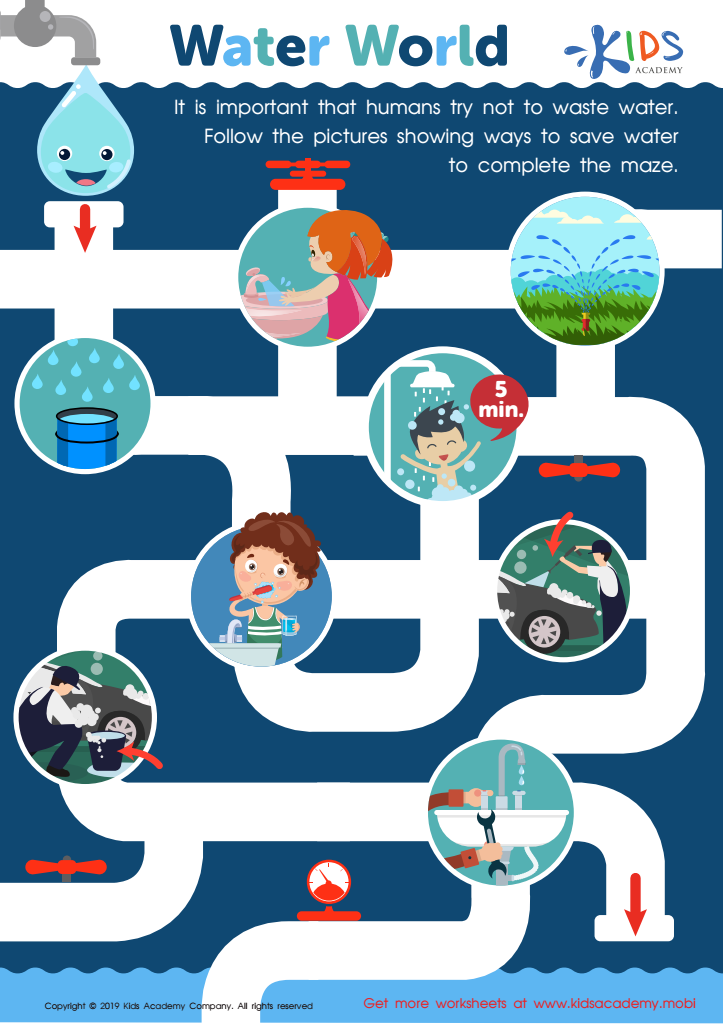Improving vocabulary Science Worksheets for Ages 4-8
3 filtered results
-
From - To
Enhance your child's scientific vocabulary with our specially designed worksheets for ages 4-8! These engaging activities make learning fun and interactive, using colorful illustrations and simple exercises to introduce key science terms. Your little explorer will effortlessly learn words related to the natural world, weather, animals, and more, fostering a love for science from an early age. Perfect for home or classroom use, our worksheets are tailored to support both budding readers and advanced learners. Encourage curiosity and boost confidence in young scientists with tools that transform learning into an exciting adventure!


Ancient Animals Worksheet


Basic Anatomy Skills Printable


Water World Worksheet
Improving vocabulary in the science domain for children aged 4-8 is vital for several reasons, benefiting both cognitive development and future academic success. First, at this critical stage, children’s brains are highly receptive to learning new words and concepts. Introducing science vocabulary early on promotes language skills, enabling children to articulate observations, ask questions, and express ideas more effectively.
Furthermore, a robust science vocabulary lays the groundwork for a deeper understanding of scientific principles as children progress through their education. Learning words like "observe," "experiment," and "predict" not only adds to their lexicons but also shapes their cognitive skills, such as critical thinking and problem-solving. Familiarity with such terms enables children to engage more meaningfully in science activities, fostering curiosity and a love for exploration.
Additionally, proficiency in science vocabulary supports overall literacy. These terms often integrate skills from reading and writing, reinforcing grammatical structure, comprehension, and fluency. Teachers and parents who emphasize science-specific vocabulary create an enriched learning environment that bridges knowledge from various subjects.
Lastly, improving science vocabulary helps address future challenges, preparing children for a world where scientific literacy is increasingly essential. Early exposure cultivates confident, knowledgeable learners eager to navigate and contribute to a scientifically complex society. Hence, focusing on science vocabulary is an investment in a child’s holistic educational development.

 Assign to My Students
Assign to My Students



















